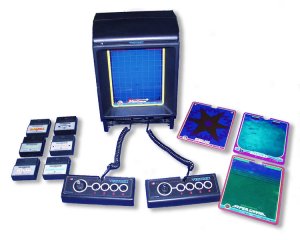Previously in the series: The Playstation and Me: David Jaffe, Part 1, The Playstation and Me: David Jaffe, Part 2, The Playstation and Me: David Jaffe, Part 3, The Playstation and Me: Ted Price, part 1, The Playstation and Me: Ted Price, part 2, The Playstation and Me: Ted Price, part 3,The Playstation and Me: Evan Wells, Part 1, The Playstation and Me: Evan Wells, Part 2,The Playstation and Me: Evan Wells, Part 3, The Playstation and Me: Scott Rohde, Part 1, The Playstation and Me: Scott Rohde, Part 2, The Playstation and Me: Scott Rohde, Part 3
Sony’s a global company, one that dominated the world of consumer electronics for decades, and the appearance of the first Playstation extended its reach like never before. So, it’s good that my last conversation was with Hermen Hulst. The managing director and co-founder of Guerilla Games claims Amsterdam as his home and he was able to give me a glimpse of the way that Playstation spread out in Europe. Hulst’s story differs in other ways from David Jaffe, Ted Price, Evan Wells and Scott Rohde, too. He didn’t grow up wanting to be in the games business and came in through the business side and not via the creative ladder.
Also, while I asked everyone in the Playstation and Me series about stereoscopic 3D game development, Hulst’s the only one who’s actively doing it. Guerilla’s Killzone 3 will be the AAA test case for a hardcore 3D gaming experience when it comes out next year and the Dutch dev studio’s been getting its collective hands dirty with the tech for many months now. Hulst brings the team’s learnings about 3D and much more to our talk. Read on.
So let’s get started in terms of you as a gamer before you got into the business. What was your interface with video game systems? When did you decide you wanted to do this as your career? I’m particularly interested in your account because everybody I’ve spoken to so far has been on the American side, so there’s some commonality in their experiences. And I’d love to hear what was different for you growing up across the pond in Amsterdam.
 Sure. Well, let’s see, where did that start? My mom had a toy store. So she had, back all the way, the Vectrex on the counter. I must admit that after hours in the shops–which they close here at 6:00, so even for a kid, there’s a good chunk of time before bedtime. I picked it up and worked on the high scores a lot. We also had the early systems. We had Pong at home and it was kind of easy for us because of my mom’s business. So I had early access to the early machines. And I played them a lot. But I kind of went on and off. I didn’t touch games for a number of years. And picked it up here and there in my student years.
Sure. Well, let’s see, where did that start? My mom had a toy store. So she had, back all the way, the Vectrex on the counter. I must admit that after hours in the shops–which they close here at 6:00, so even for a kid, there’s a good chunk of time before bedtime. I picked it up and worked on the high scores a lot. We also had the early systems. We had Pong at home and it was kind of easy for us because of my mom’s business. So I had early access to the early machines. And I played them a lot. But I kind of went on and off. I didn’t touch games for a number of years. And picked it up here and there in my student years.
But my first professional experience was when, during my student years, I landed an internship with Ubisoft on the marketing side. They were just setting up in the United States. It was an opportunity for me to really delve into understanding what makes great games, because I was running focus groups on them, writing marketing plans for them. That was in the years where they launched the first Rayman, so that was ‘94 we’re talking now. So, I was in business school, and I spent some time at Ubisoft.
Then I left the industry again and I worked as a strategy consultant doing serious stuff. I worked with Philips Electronics in strategic marketing. And I was always working on the technology and media side of things. I was working on things like video conferencing and interactive television. But I always enjoyed the interactivity, the turning images to graphics part, the gameplay and the technology. So, that sphere always intrigued me. I really enjoyed that working experience at Ubisoft. I was doing some other things. I guess I kind of told myself that I should enter a profession that was serious, because games were still very young at the time.

